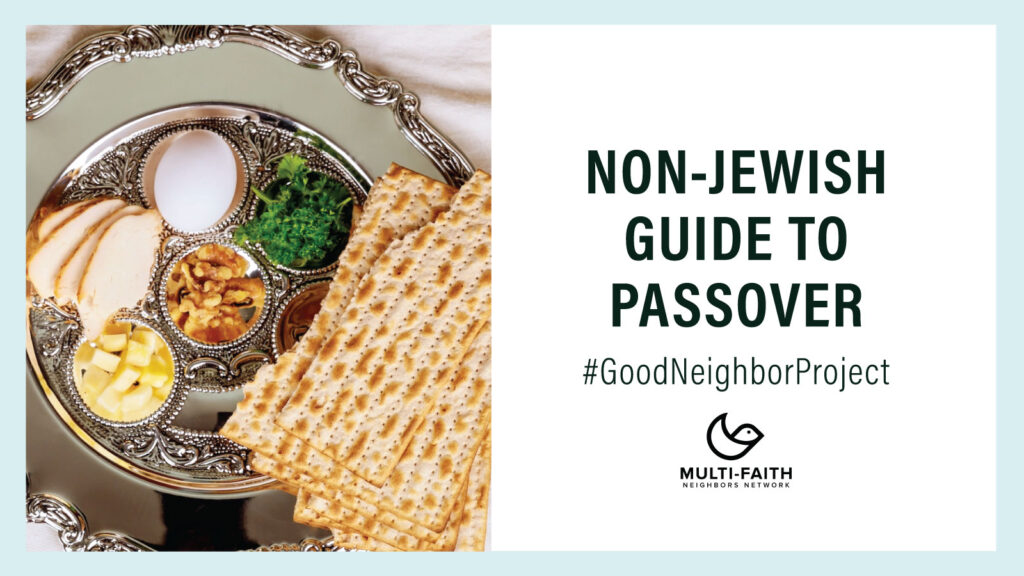Here is a short guide for those who are not Jewish to understand this holiday and how to be a good neighbor to Jewish friends during this Passover season.
What is Passover?
In Hebrew, the word for Passover is “Pesach,” which comes from the Hebrew word for paschal lamb. The paschal lamb symbolizes the offerings the Israelites made to God before being freed from slavery, as well as the miracle that occurred during the final plague in which God “passed over” the Israelites’ houses that had lambs’ blood painted on the exterior. This is one of the three pilgrimage holidays (known as Shalosh Regalim) and celebrates the Israelite’s freedom from slavery in Egypt.
The celebration of Passover includes a seder, a festive and ritual meal that incorporates the retelling of the Israelites’ exodus from Egypt. In addition, Jews abstain from eating “chametz” (chametz is leavened bread) and other leavened food. As the Israelites fled Egypt, they baked bread but left so quickly that they did not have time to allow the bread to rise. Instead, they baked flat, cracker-like food known as “matzah.” Many Jews get rid of every trace of “chametz” in their home prior to the start of Passover.
Jews in Israel and many progressive Jews outside of Israel observe Passover for seven days, while other Jews outside of Israel observe eight days. The first and final days of Passover are known as a “chag,” which means no work is done (just as Shabbat is observed each week).
When is Passover celebrated?
Passover begins on the 15th day of the Hebrew month of Nisan. Because the Hebrew calendar is lunar, the first day of Passover changes in our calendar each year. But as a lunar calendar, the Jewish calendar is 11 days shorter than the Gregorian calendar, so Passover dates change year to year, within March and April. In 2024, Passover runs from the evening of Mon, Apr 22, 2024 – Tue, Apr 30, 2024.
What greetings can I use?
Chag Sameach – Happy Holiday
Chag Pesach Sameach – Happy Passover
Zissen Pesach – Yiddish greeting meaning, “sweet Passover”
Gut Yontif – Yiddish greeting meaning, “Happy holiday”
How can I be a good neighbor during Passover?
Before Passover begins, it is customary to remove “chametz” from the home. For some, they donate the extra bread, crackers, and other food items to charity, or they will sell them to neighbors for a very low price. You could either purchase this extra “chametz” or keep it in your home until the holiday is complete.
There are many food restrictions during Passover, so the best approach is to wait until the holiday has ended to bring any food items or gifts to neighbors celebrating.
If you are invited to a seder, go! It’s a great opportunity to learn about a new culture and new traditions.
FAQs
Do you only eat matzah during Passover?
While it’s important to eat matzah, it’s also important to eat other foods as well. It’s not called the “bread of affliction” just because it reminds Jews of the Israelites’ time in Egypt.
Is it true you drink four full cups of wine at a seder?
Yes, sort of… While the tradition encourages each participant to drink four full glasses of wine during the seder, it is most important that individuals do what is best for themselves to remain healthy. And, grape juice is a perfectly acceptable alternative.
Should I avoid eating leavened food in front of Jews during Passover?
You are welcome to eat whatever you’d like, although it would be polite to eat pizza, bagels, and other delicious sources of carbs elsewhere.
How can I support my Jewish neighbors during Passover?
Know that many Jews observe the first and final days as an important holiday, so it would be best to schedule work, assignments, tests, activities, and other events on alternative days.
Content provided by:
Rabbi Kelly Levy
Congregation Beth Israel- Austin, TX
